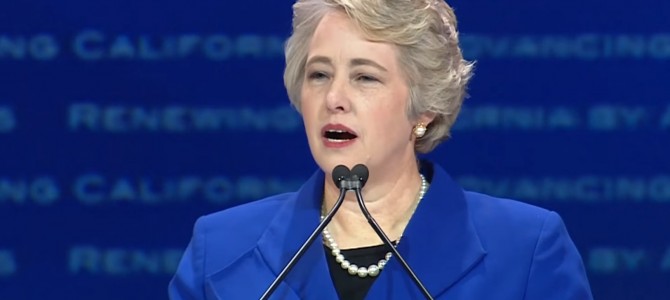One local Houston election item from yesterday received national attention, the Houston Equal Rights Ordinance, or HERO to its supporters. Early results with more than two-thirds of precincts in showed it losing, 62 to 38 percent, despite having passed the City Council 11-6.
HERO did not grant any rights. It added an avenue of recourse for discrimination. Anyone in a protected class who thinks they are being discriminated against can sue in federal court. HERO added an option to complain to the City of Houston. File a complaint and someone would investigate, like calling about pot holes. This was supposed to be more effective than a suit, though goodness knows Houston officials haven’t done a great job responding to pothole complaints.
When HERO passed City Council in May 2014, many Houstonians worried it would be another selectively enforced regulation. Again, using the pothole comparison, neighborhoods in preferred parts of town get street repair, while streets in other areas drive like you are on the moon. (This is Houston. We like lunar analogies.) Similarly, we worried that if you ran a not-preferred business, HERO might cause you to find your business subject to discrimination investigations and fines. Particularly easy would be sting operations, such as transgender males claiming discrimination if an establishment did not allow them to use women’s restrooms.
The ordinance originally contained specific language about this scenario, but that was dropped to assure the City Council would pass it. Still, the bathroom example was particularly vivid and believable with all the national news and sensational stories concerning gender issues.
Let’s Up My National Profile
The media went with HERO. It made for good press. Facing term limits, Mayor Annise Parker wanted it as a resume builder for LGTB support. Wendy Davis was floundering then in her campaign for governor, and Parker probably wanted to fill that role as the Democrats’ up and coming It woman. The example suited her. She had even tweeted her assurances to “my trans sisters/brothers” when she dropped the language singling them out about bathroom privileges. HERO became the bathroom ordinance.
It all blew up with the petition.
Parker knew the ordinance would not likely pass a city referendum. Houstonians do not like regulations. We are the only major U.S. city without zoning, a fact which makes us notorious to city planners everywhere else but makes complete sense to us. This is why she ran HERO through the City Council in the first place. (Think of Congress passing Obamacare.) The only way to protect her ordinance was to keep it off the ballot.
Local leaders knew this, too. Some circulated a petition to put the ordinance on the ballot. That petition quickly gained enough signatures. Parker had to attack the signatures.
Brilliant Idea: Let’s Attack Free Speech
Some of the local leaders were pastors. That fact presented an option. The city attorney subpoenaed the pastors’ sermons. Readers might remember the outcry early last fall. Parker’s theory was that the pastors used “pulpits for politics” and obtained the signatures by fraud or false statement. She wanted to invalidate enough signatures so the City Council’s refusal to repeal or put the ordinance on the ballot last year, in 2014, would stand.
The act of subpoenaing the sermons drew swift and firm opposition. Parker had to withdraw the subpoena, and HERO came to represent a threat to religious liberty. What little chance of survival it had evaporated.
In July, Parker lost the court case. The per curium opinion held that the ordinance must be repealed or put on the 2015 ballot, as mandated by the city charter.
Tough Sell to Minority Voters
Now we come to the mayors. Houston has mayoral elections in off, or odd years. Most big elections happen in even years. Parker, having been elected for three terms, was term-limited. With no incumbent, the mayoral field was large. It included an African-American man and a Hispanic man, both Democrats like Parker and each with high name recognition. They drew Hispanic and African-American voters to the polls yesterday, two voting groups not known for their support of LGBT issues.
If HERO was a tough sell to regulation-adverse Houstonians in general, it was a lost cause in a year with motivated Hispanic and African-American voters. And that is before considering the religious liberty threat from the subpoenaed sermons debacle.
The early voting opened last night with more than 60/40 in opposition to HERO. The numbers did not ease as the night wore on. It failed with only 38 percent of the vote.
Interestingly, the ordinance was undervoted. That is, many voters did not vote on HERO. They knew there was no winning. They could rubber-stamp a redundant regulation primed for abuse or see the city slandered for bigotry.
The fact that Houstonians obviously do not care about a person’s sexual orientation but about how he or she does a job—this is a “fix the problem” kind of city—does not matter. HERO was about LGBT rights. That’s what the media told the public. It failed. So we must be bigots, right?









